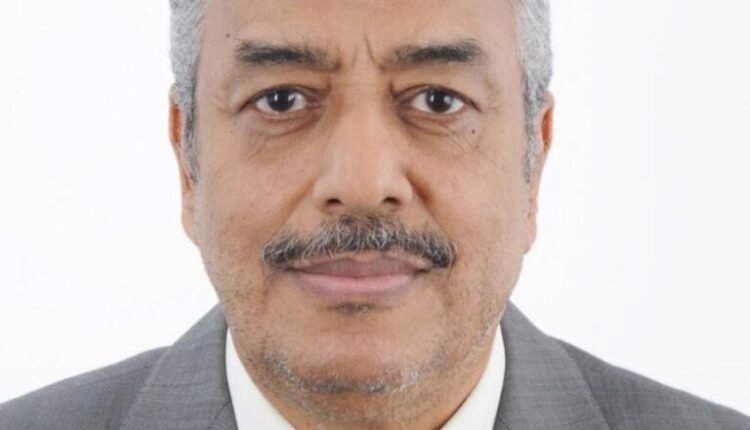Has God Abandoned the Muslims? (3 of 3)

By Dr. Ismail Satti
Part Three: Why Are Muslims Denied Deterrent Power?
If internal weakness is one cause of defeat, then one of the clearest manifestations of that weakness is the systematic denial of Muslims’ ability to possess deterrent capabilities. This denial is not incidental — it is the result of a long-term project in which theology, global interests, and international strategies intersect.
1. The Continuation of the Crusades – From Past to Present
The Crusades did not end; only their tools and justifications changed. Some institutions in the West still operate under a historical mindset that views Islam as an existential rival. Here are a few telling examples:
In 1920, French General Gouraud stood at the tomb of Salah al-Din and said: “We have returned, O Salah al-Din!”
George W. Bush referred to the invasion of Iraq as a “Crusade.”
This mindset isn’t fighting a specific state — it targets the revival of the Islamic ummah as a whole.
2. The Philosophy of Creative Chaos
This strategic concept emerged with the rise of the neoconservatives in the U.S., notably associated with Condoleezza Rice and Zbigniew Brzezinski. It revolves around creating chaos to reshape regions politically and socially in favour of U.S. dominance.
Applied in Iraq, Syria, Yemen, Libya, and now Sudan.
States like North Korea or Israel, despite their real threats, are spared this chaos.
3. The New World Order – Neoliberal Hegemony
Following the collapse of the Soviet Union, the world underwent major geopolitical shifts:
Concepts such as globalisation and open markets were selectively applied to certain nations.
National sovereignty was eroded through IMF and World Bank conditions.
Sanctions were imposed on so-called rogue states.
Replacement regimes were installed — functional to global interests, not to their people.
4. Tools of Direct Prevention from Acquiring Deterrent Power
a. Weapons Embargoes
Sanctions are imposed on countries like Iran, Sudan, Iraq, and Palestine.
Muslim countries are barred from developing strategic weaponry.
b. Demonising the Pursuit of Deterrence
Any Muslim-majority state seeking to arm itself is framed as a global threat.
Even intentions are punished — as seen with Iran, despite IAEA reports denying military nuclear ambitions.
c. Selective Support
Major powers support and arm compliant regimes but isolate independent ones.
Full military superiority is granted to Israel, no matter how many war crimes or ethnic cleansing accusations it faces from international and regional bodies.
d. Economic and Media Blockades
Muslim-majority “rogue” states face crippling economic sanctions.
Media warfare targets leaders or movements that operate independently from hegemonic powers.
5. The Absence of a Comprehensive Civilizational Project
There is no unified strategic vision among Muslim nations.
Ongoing dependency on the West for industry, technology, and economic models.
China and India have developed independent projects despite poverty and adversity, while Muslims remain mired in division and infighting.
The Denial of Power Is No Accident
It is part of a system designed to keep the Muslim world weak. But this external reality does not absolve Muslims from responsibility:
If we are blockaded — let us surround ourselves with knowledge.
If we’re denied arms — let us build an independent economy.
If we’re defamed — let us tell our own story.
True revival is not about reactions but about a holistic vision grounded in divine laws and empowered by capability.
Final Reflections on the Central Question: “Has God Abandoned the Muslims?”
This three-part series was not an attempt to justify weakness or excuse failure but a sincere effort to deconstruct a complex reality, revive a neglected awareness, and connect divine laws to present conditions.
We conclude that:
God does not abandon His servants — it is the Muslims who have abandoned God’s laws.
Defeat begins within — when justice disappears, competence is sidelined, and unity fractures.
No one can stop you from rising unless you are internally prepared to remain on your knees.
Change Is Possible — Not Inevitable
The condition of the ummah is not a sealed fate, but change requires two conditions:
1. Returning to God through Action, Not Slogans
Faith in motion, not frozen in rituals.
Piety that translates into justice, excellence, and progress.
2. Building an Independent Civilizational Project
A unified strategic vision that redefines collective interests.
Conscious alliances, not emotional reactions.
Investment in human capital, intellect, science, and technology.
Revival Is Not Born from Slogans, but from Determination
An ummah that waits for a saviour without reforming itself will remain trapped in the wilderness.
Today’s challenges are a historic opportunity to rebuild on new foundations — guided by divine laws, inspired by revelation, rooted in reality, and driven by a will to acquire power — not to seek strength from others.
For in every era, the decisive word remains with the laws of God:
“Indeed, Allah will support those who support Him.”
(Qur’an 22:40)
So, has the time come for us to truly support God — with pure thought, honest action, and unbreakable unity?
Shortlink: https://sudanhorizon.com/?p=6194

